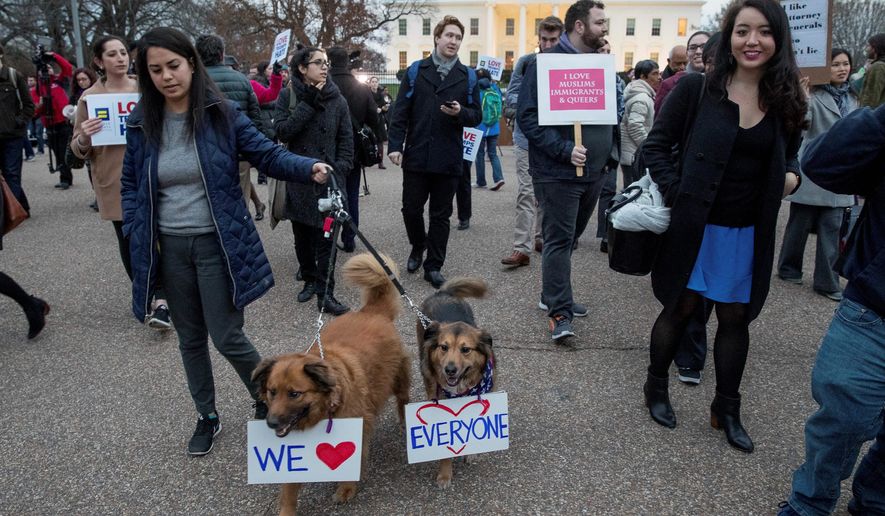Leaders of Iranian-American organizations testified in federal court Tuesday about the negative effects that President Trump’s executive order on travel and refugees has had on their community, even as enforcement of the order has been barred.
The case is one of dozens that have sought to challenge the legality of the executive order, but Tuesday’s hearing before U.S. District Judge Tanya S. Chutkan in Washington, D.C. represents the first time witnesses have provided in-person testimony challenging the executive order.
Federal court rulings out of Hawaii and Maryland have blocked portions of Mr. Trump’s executive order from currently being enforced. Attorneys involved in the D.C. case say they are seeking an injunction that would take effect if either of those orders were overturned but also to compel the government to resume visa operations as they had run prior to the announcement of the first order on Jan 27.
“We want the government agencies to go back to doing the jobs they were doing before,” said Jon M. Greenbaum, chief counsel for the Lawyer’s Committee for Civil Rights Under Law, ahead of Tuesday’s hearing. “We have declarants who have had their visas approved for travel to the United States but never actually got the visas themselves. They are stuck outside of the United States.”
The four groups suing the Trump administration over the order are the Pars Equality Center, the Iranian American Bar Association, National Iranian American Council, and Public Affairs Alliance of Iranian Americans. The groups contend that Iranian-Americans would be hit hardest by the executive order if it is allowed to take effect. The State Department indicates that in 2015, Iranians were issued 35,266 nonimmigrant visas to come to the United States - more than to nationals from any of the other five countries named in the revised order.
The revised order would ban foreign nationals of Iran, Libya, Somalia, Sudan, Syria and Yemen from traveling to the United States for 90 days. It would also ban for 120 days all refugee resettlement in the United States and would lower the cap on the number of refugees to be allowed into the United States this year from 110,000 people to 50,000 people.
Before the first order was issued in January, the president of the Iranian American Bar Association testified that only about 10 percent of the organization’s resources were dedicated to dealing with immigration or visa issues. After the order was announced, Babak Yousefzadeh said the organization “went into crisis mode” and now roughly 50 percent of its resources are being directed toward issues related to the order. Even with the order on hold, he said the group is still plagued with questions they aren’t able to answer because of a lack of certainty in how the government will implement the order if it is allowed to take effect.
Leila Golestaneh Austin, executive director of the Public Affairs Alliance of Iranian Americans, said her group had to postpone projects such as a sports diplomacy program that would have brought Iranians to the U.S. as a result of uncertainty about the executive order. She said the order has created a stigma against Iranian-Americans and led members to take on new initiatives such as addressing hate crimes targeting the Iranian American community.
The Justice Department sought unsuccessfully to prevent Tuesday’s testimony ahead of a preliminary injunction hearing scheduled for Friday, arguing that declarations filed in court were sufficient. Judge Chutkan will preside over the preliminary injunction arguments set for Friday, which are being heard in conjunction with a second case - filed by the Universal Muslim Association of America, Muslim Advocates, and the Southern Poverty Law Center.
• Andrea Noble can be reached at anoble@washingtontimes.com.




Please read our comment policy before commenting.